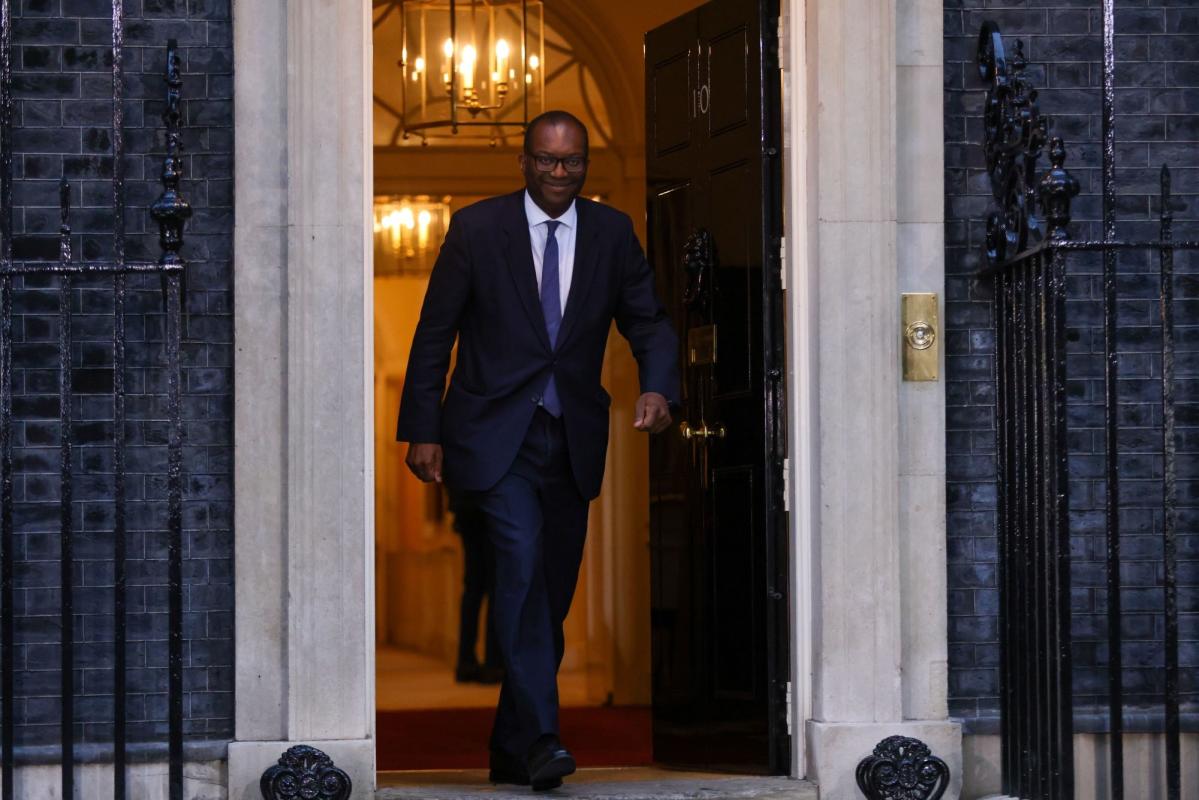
(Bloomberg) —
Most Read from Bloomberg
UK Chancellor of the Exchequer Kwasi Kwarteng pledged further tax cuts in his pursuit of growth after unveiling the biggest fiscal giveaway in half a century.
Kwarteng’s package on Friday scrapped the top level of income tax and cut the basic rate by a percentage point, while also reversing a rise in the National Insurance payroll tax brought in earlier this year.
“There’s more to come,” Kwarteng said on Sunday in a BBC television interview. “We’ve only been here 19 days. I want to see, over the next year, people retain more of their income, because I believe that it’s the British people that are going to drive this economy.”
The chancellor’s comments suggest Prime Minister Liz Truss’s government won’t be deterred by the market chaos unleashed by its “Growth Plan” — which amounted to a budget in all but name.
“I don’t comment on market movements,” Kwarteng said, while standing behind his plans. “There was no way that we were going to get more growth by simply increasing taxes and taking more of people’s money,” he said.
Price Tag
His remarks establish clear water between the Tories and Labour, coming after the ruling party this year adopted opposition policies including a windfall tax on energy giants and a freeze on domestic power and gas bills. Labour Leader Keir Starmer on Sunday told the BBC that he would bring back the top rate of income tax.
While Kwarteng didn’t elaborate on potential future tax cuts, the Telegraph late on Saturday reported that he’s considering bringing in further reductions in income tax and discounts for savers and child benefit claimants in a full budget next year.
The Treasury put the cost of Friday’s fiscal announcements at some £161 billion over the next five years, in addition to the £60 billion price tag on the government’s energy bailout for households and businesses over the next 6 months. That prompted investor concerns that the approach will stoke already-soaring inflation further and send debt ballooning.
But the chancellor told the BBC he’s “confident” the Bank of England is dealing with runaway inflation and promised to set out in the coming months a “medium-term fiscal plan” including a commitment to get net debt falling as a percentage of gross domestic product.
Center Ground
The Tory approach — which benefits higher earners far more than the poorest Britons — provides fertile territory for Labour “to occupy that center ground,” Labour grandee Peter Mandelson — who served in former Labour Prime Minister Tony Blair’s cabinet, told Sky News on Sunday, as the opposition party began its 4-day annual conference in Liverpool, northwest England.
“The Conservatives in effect are taking their own policy direction off the center ground, the middle ground of British politics,” Mandelson said. “That’s where the swathe of voters exist in the country who are going to determine the outcome of the next election.”
Starmer told the BBC he’d reverse Kwarteng’s abolition of the 45% top level of income tax, levied on those earning more than £150,000 ($163,000), but retain the 1-percentage point reduction in the basic rate.
He slammed as “wrong-headed” the argument “that if you simply allow the rich to get richer, somehow that money will trickle down into the pockets of all the rest of us.”
Former Tory chancellor Ken Clarke backed that view up, telling BBC radio on Sunday he didn’t believe cutting taxes for the wealthiest would stimulate growth. “I’m afraid that’s the kind of thing that’s usually tried in Latin American countries without success,” he said.
Labour has enjoyed a comfortable poll lead over the Tories for most of 2022, and on Sunday, a new survey conducted by Savanta ComRes for the website LabourList gave the opposition a 12-point lead over the ruling party. The poll was conducted before Kwarteng’s statement, and seat-by seat analysis showed Labour on course for a 56-seat majority at the next election, which Truss must call by January 2025 at the latest.
(Updates with comment from former chancellor Clarke in 14th paragraph)
Most Read from Bloomberg Businessweek
©2022 Bloomberg L.P.




